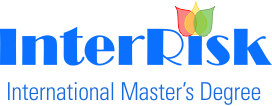You are here
InterRisk Master's Programme Philosophy and Organisation
Master's Programme Philosophy
Efforts to educate InterRisk students in a “One Health” perspective is made, by encouraging veterinary, medical and biosciences students to work together. Zoonotic diseases and antimicrobial resistances are specifically targeted. Also, emphasis is placed upon inter-country health issues in order to push students to think and work at a regional scale when appropriate. Case studies from actual hotspots of effective One Health collaboration in South East Asia are selected in order to create real-life lessons and course materials. Also, special attention is given during the courses to community-based participatory actions.
The number of hours during which lessons are taught through traditional lectures is limited to the minimum. Emphasis is placed on:
- Practical works such as laboratory experiments for disease diagnostics,
- Field visits with, for example, biosecurity audits on livestock production units or outbreak investigation,
- Computer-based problem solving which include data analysis, biostatistics and epidemiology.
Time is left for the students to engage in self-directed study, which is evaluated through symposiums gathering all students and a panel of teachers. Innovative pedagogical tools (active learning, real case problem-solving, field visits, and computer-based modules) are promoted.
Through teaching and internships, students interact with professionals from the private agricultural sector, international organisations, governmental agencies, NGOs and research institutes. The Master’s programme initiates the creation of professional social networks at a regional level. This is done through:
- Placement of students for training periods in ongoing One Health projects,
- Bi-annual seminars gathering students, researchers, academic staff, project managers and industrials,
- Construction of an Alumni Association which organises yearly social events to gather former students.
Master's Programme Organisation
The full-size post-graduate program is completed over two university years of full-time study.
- The first year of the curriculum solidfies students’ knowledge of basic concepts in microbiology, biostatistics, and epidemiology. Students are also trained on appropriate research methodologies.
- The second year of the curriculum provides students with advanced tools for the assessment and management of health risks (biostatistics, epidemiology, social and economic analysis). The curriculum also includes three transdisciplinary modules dealing with ecosystemic approaches.
The course is delivered in a modular format in order to ensure flexibility, with assessments for each module. For more information about each module, please refer to Master’s Programme Year 1 and Master’s Programme Year 2.













